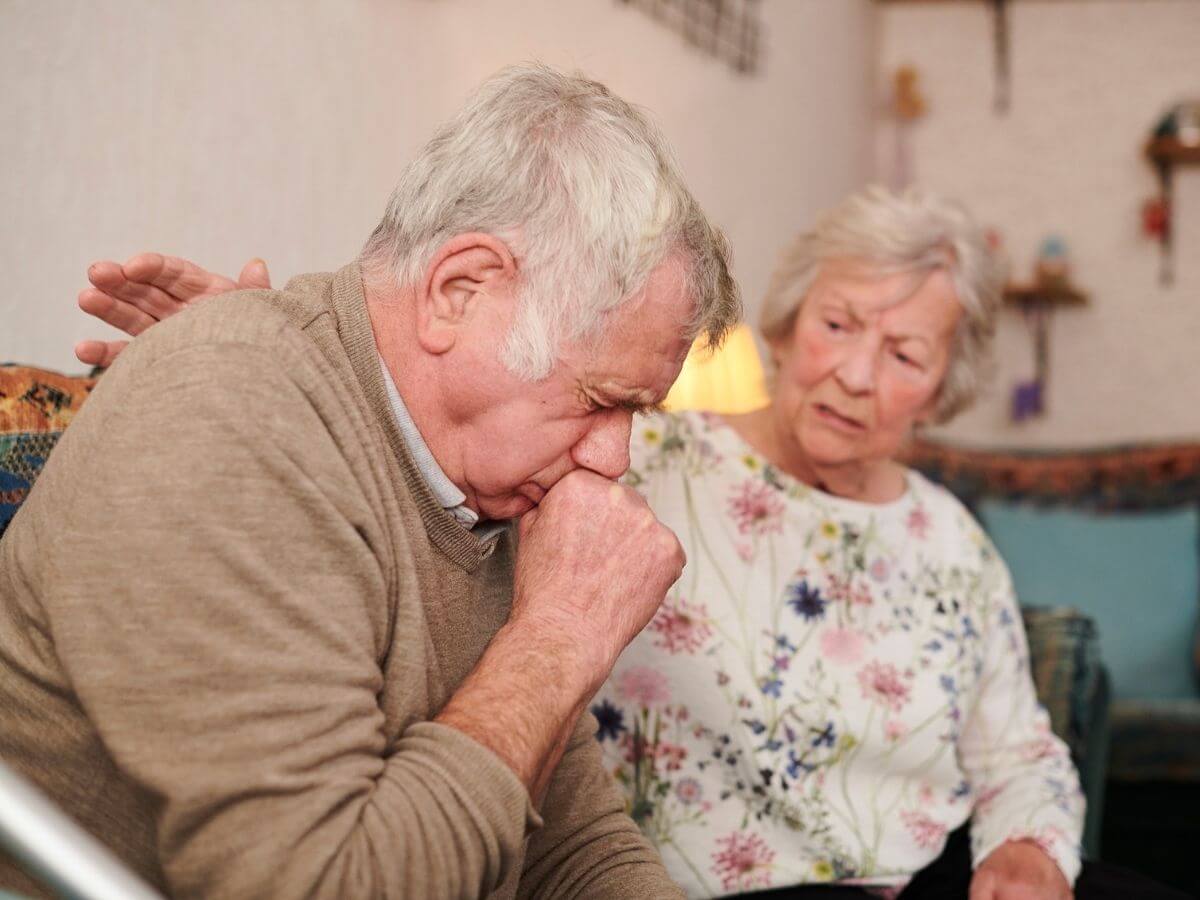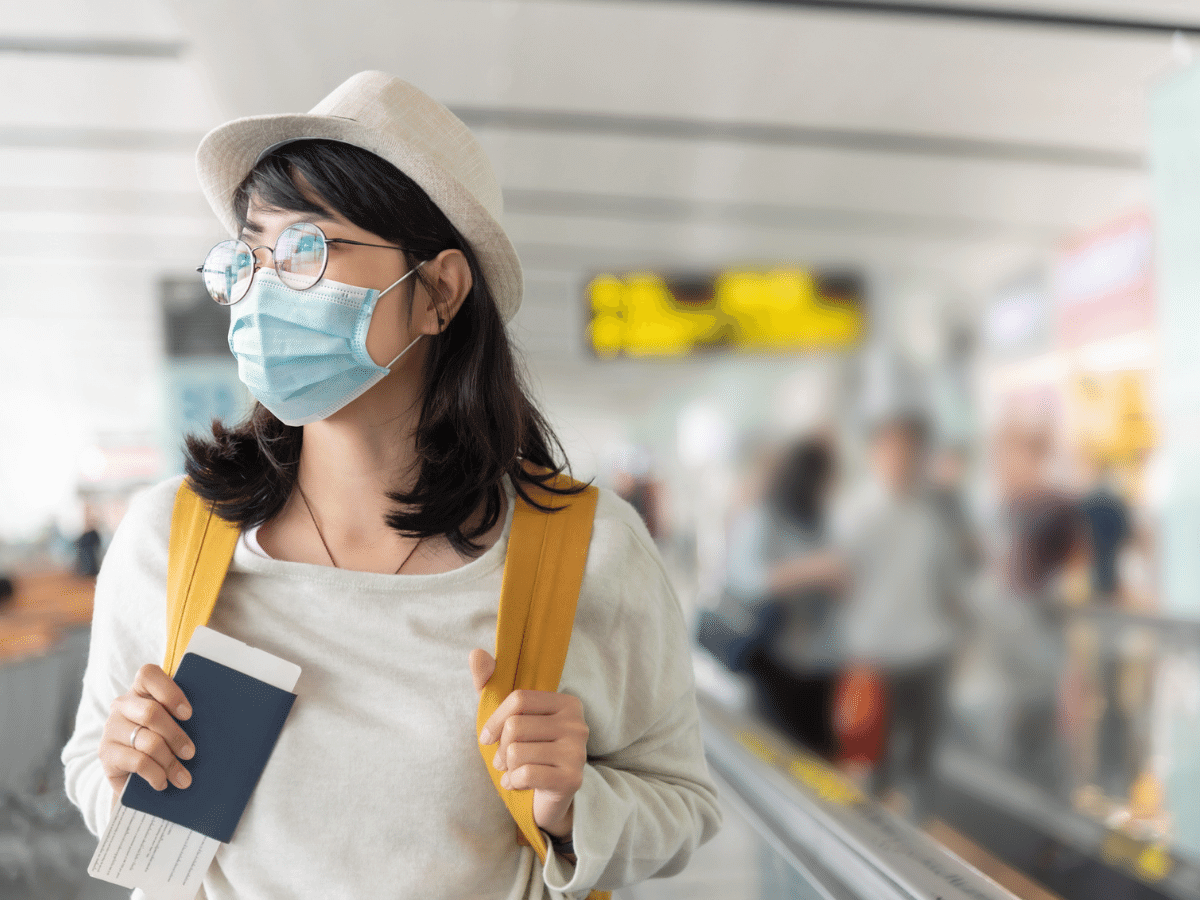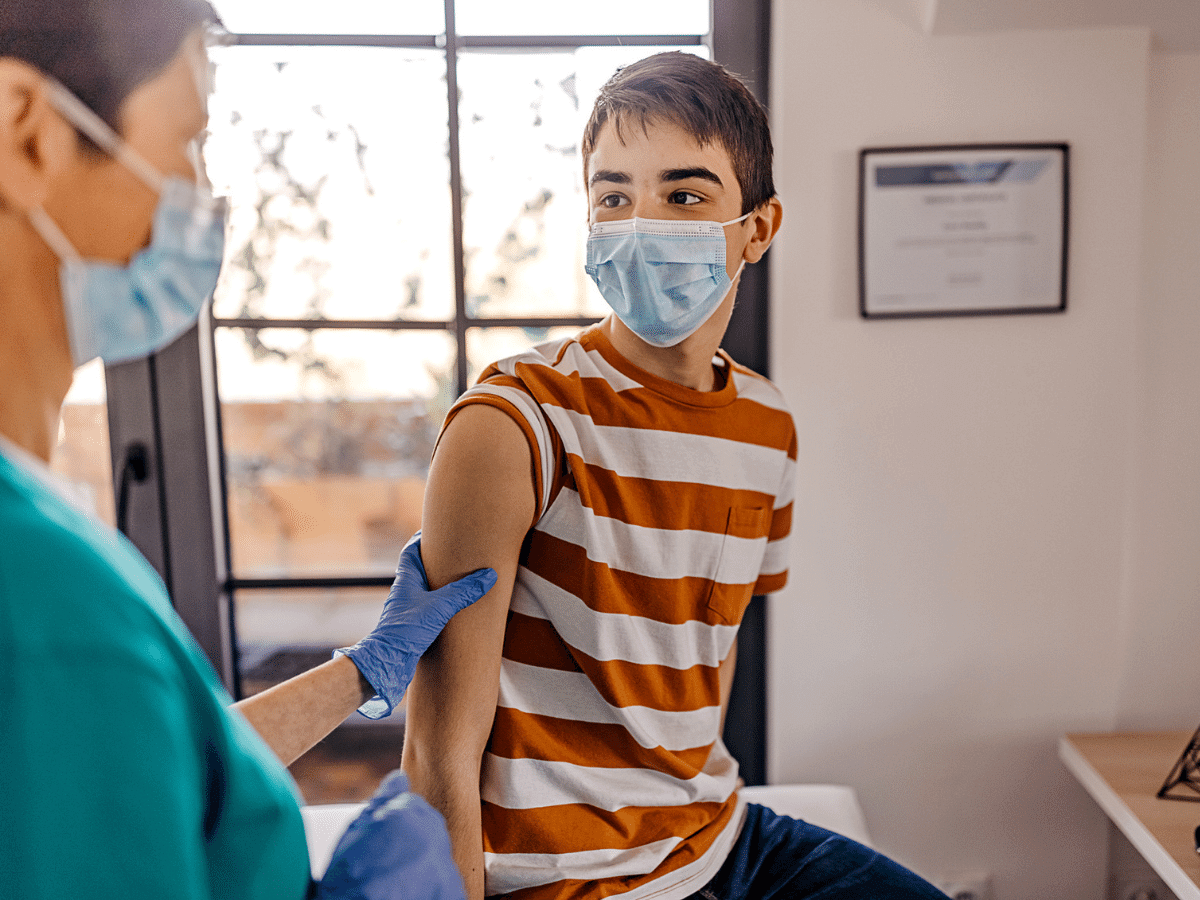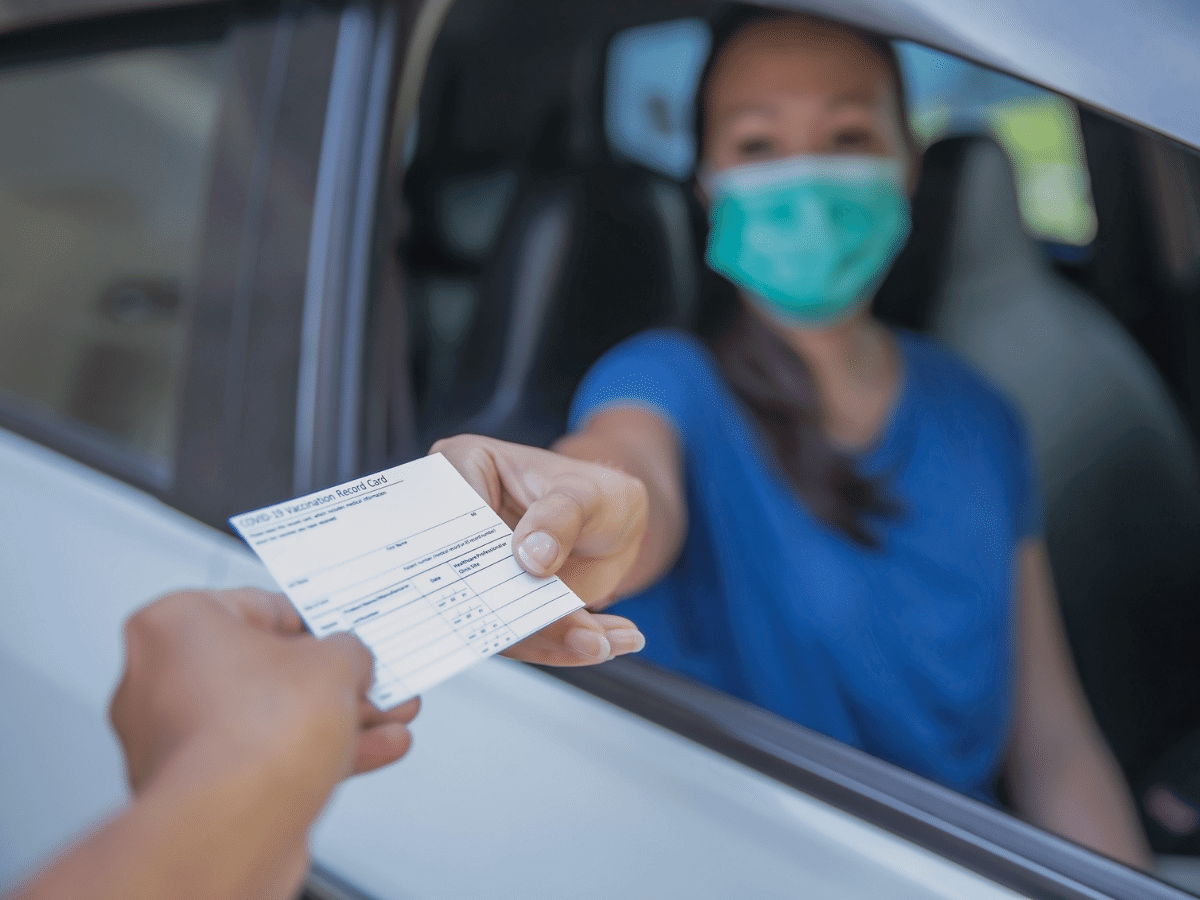Can COVID-19 Cause Pneumonia?

Most people who get COVID-19 experience mild to moderate symptoms, including fever, coughing, and shortness of breath. However, approximately 15% of COVID-19 cases are severe. This includes people who develop what’s referred to as COVID-19 pneumonia — a serious illness that can be deadly in some instances.
What Is Pneumonia?
Pneumonia is an infection that can be caused by viruses, like COVID-19 or the common cold, but also by bacteria, fungi, and other microorganisms. It develops in one or both lungs and causes the tiny air sacs there to become inflamed. Those sacs can also fill with pus or fluid, making it difficult to breathe. People with pneumonia can also experience chills, fatigue, and chest pain.
In some instances, pneumonia can be treated with medications like pain relievers and cough medicine. But if you develop a severe case of pneumonia, you may need to be hospitalized and put on a ventilator — a machine that helps you breathe.
Getting Vaccinated is the Best Protection
Getting the COVID-19 vaccine is the best way to prevent COVID-19 infection and end the pandemic. The vaccine cannot give you COVID-19, but it can help protect you from serious illness. Learn more about the COVID-19 vaccine and make a first, third, or booster vaccination appointment at a location near you.
How Is COVID-19 Pneumonia Different from Typical Pneumonia?
COVID-19 has many of the same symptoms as a typical case of pneumonia. However, research suggests that people with COVID-19 pneumonia are more likely to have it in both lungs, that the lungs are more likely to have the characteristic “ground-glass” appearance, and that lab tests of people with it are more likely to detect other abnormalities, particularly in liver function.
These and other factors mean that you can experience more serious symptoms from COVID-19 pneumonia than other types of pneumonia. This can include severe trouble breathing and low oxygen levels, along with an increased risk of acute respiratory distress syndrome (ARDS). Consequently, people with COVID-19 pneumonia have a higher risk of hospitalization and death.
If you start to develop pneumonia from a COVID-19 infection, you may experience symptoms like:
- Shortness of breath or rapid breathing
- Dizziness
- Rapid heartbeat
- Heavy sweating
What Are the Risk Factors for COVID-19 Pneumonia?
Anyone can develop COVID-19 pneumonia. But those who are 65 or older have a higher risk of the illness, with people 85 or older having the highest risk.
The risk of developing COVID-19 pneumonia is also higher for people with other health problems, including:
- Moderate to severe asthma
- Severe obesity
- High blood pressure
- Heart disease
- Lung disease
- Diabetes
- Kidney failure
- Liver disease
- Weakened immune system
Get Vaccinated Against COVID-19
The best way to avoid serious health problems from COVID-19, including pneumonia, is to be vaccinated. People who are vaccinated and boosted typically develop only mild to moderate symptoms if they get COVID-19.
Getting vaccinated is safe and easy. A quick, relatively painless poke and you’re on your way. Then, very quickly, your body responds to the vaccine by producing antibodies that help protect you from COVID-19. The vaccine provides the “instructions” your body needs to develop natural defenses against the virus.
Learn more about vaccine availability at Baptist Health and schedule your appointment.
Next Steps and Useful Resources
Find a Provider
Make a Vaccine Appointment
Discover Care Options
Pneumonia vs Bronchitis: When To See a Doctor
Visiting the Emergency Department During COVID-19



